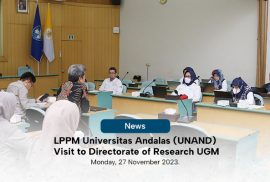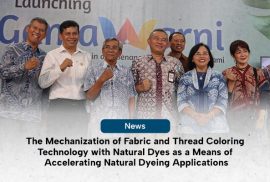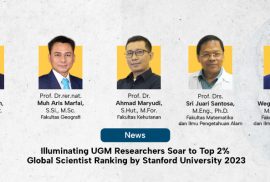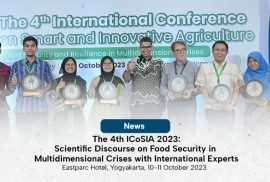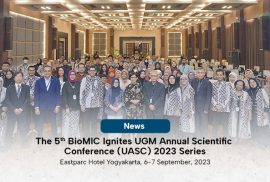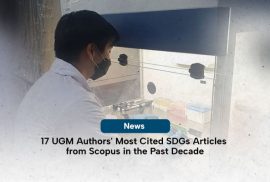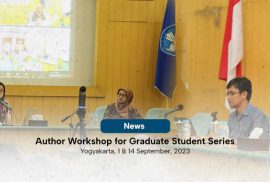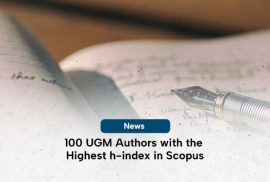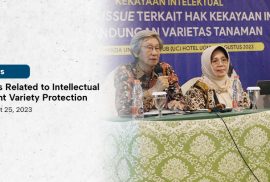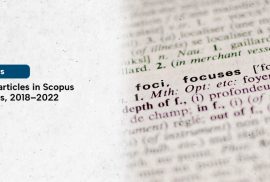Arsip:
2023
Monday, 27 November 2023, Directorate of Research Universitas Gadjah Mada (UGM) welcome a visit from LPPM (Lembaga Penelitian dan Pengabdian kepada Masyarakat) of Universitas Andalas (UNAND) led by Dr. -Ing.
To date, Indonesia still utilizes and imports synthetic dyes for textiles in large capacity. On the other hand, Indonesia boasts a cultural tradition of employing natural dyes, known for their significant benefits to bodily well-being.
Stanford University has released a list of the most influential researchers in 2023. Within this list, five researchers from Universitas Gadjah Mada (UGM) have secured a position in the Top 2% World Ranking Scientists.
The second series of UGM Annual Scientific Conference (UASC) 2023 invites experts in the field of agriculture on the 4th International Conference on Smart and Innovative Agriculture (ICoSIA 2023).
UGM Annual Scientific Conference (UASC) 2023 is commenced by the 5th Bioinformatics, Biotechnology, and Biomedical Engineering Conference (BioMIC 2023) held on 6-7 September 2023 in Grand Ballroom of Eastparc Hotel, Yogyakarta.
Image source: cnnindonesia.com Most cited UGM’s scientific articles on 17 SDGs subjects in Scopus for the past 10 years until 14 September 2023 are: No poverty, Factors Determining Social and Environmental Reporting by Indian Textile […].
Universitas Gadjah Mada’s Directorate of Research organized its first-ever “Author Workshop for Graduate Student Series” on September 1, 2023. This event was held at Multimedia Room II and focused on graduate students from the Science […].
Image sources: Aaron Burden on Unsplash The h-index is a metric used to assess the impact of a scientist’s research publications within their respective field of expertise.
On Friday, August 25, 2023, the Directorate of Research of Universitas Gadjah Mada (UGM) held a Focus Group Discussion on the Preparation of Intellectual Property (IP) Curriculum Supporting Modules, with the theme, “Current and […].
Image source: https://unsplash.com/photos/ywqa9IZB-dU The credibility and relevance of researchers is reflected by many indicators, one of which is the number of citations or citations as references to other research.

